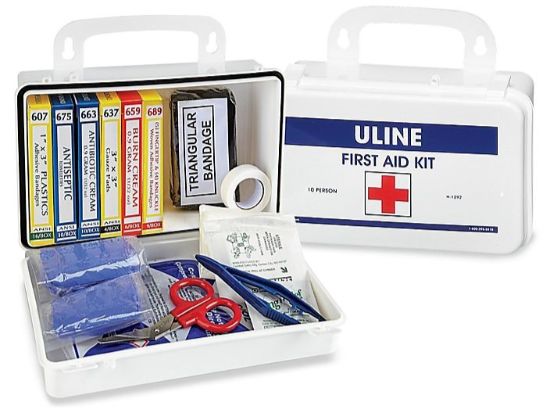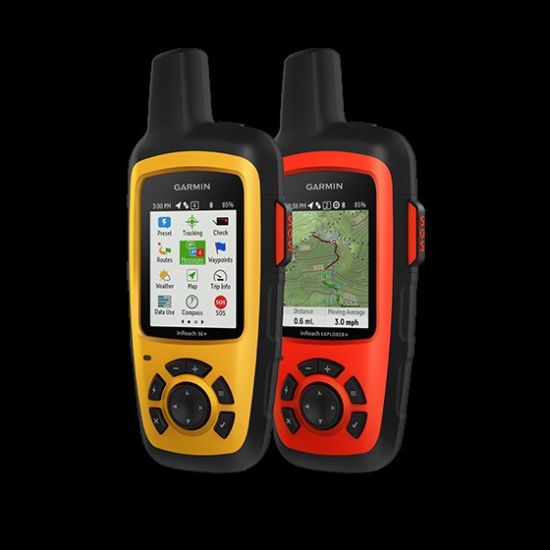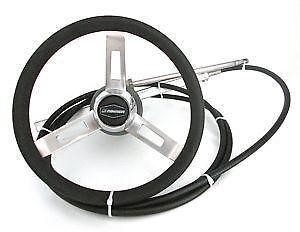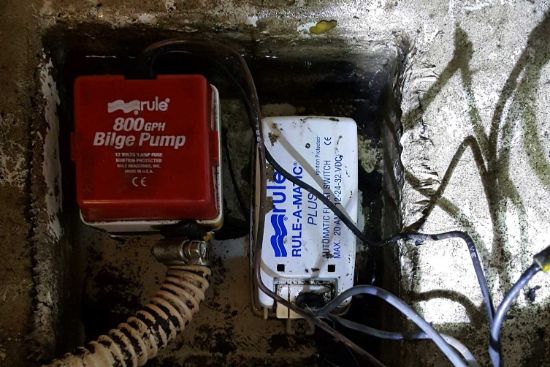5 Common Safety Blunders
Statistically speaking, boating is a shockingly safe activity, yet there’s always a danger to being out on the water. Safety should always be foremost in our minds. Plus, as captain of your boat, you are responsible for every crewmember aboard. So, it’s incumbent on you to watch out for these five safety blunders that many boaters make.
Blunder #1 – No First Aid Kit
The vast majority of the boaters out there get the minimum legally-required safety gear and consider that sufficient. But it’s not, by a long shot. The most glaring example is that you’re not required to carry even the most basic first-aid kit. Going strictly by the regulations, you won’t have what you need to deal with common injuries like a fish hook stuck in a body part, an accidental slice with the bait knife, or a hatch-slam on a delicate body part such as a finger or toe.

The need for a first-aid kit is the most obvious way in which regulations don’t cover all the bases, but by no means is it the only one.
Blunder #2: Inadequate Communication Equipment
Communication devices are another area in which many boats lack sufficient coverage. On boats that go out into coastal bays, for example, it can be tempting to rely upon cell phone communication in case you need a tow, have a medical emergency on board, or some other difficulty arises.

Cellular simply can’t be relied upon as your sole communications device away from the dock. A DSC-active VHF radio is necessary and is the bare minimum. If you venture far from shore or deep into the backcountry, add an emergency signaling device to your list.
Satellite messengers (like the SPOT or the Garmin InReach) give you the ability to signal for help regardless of how remote your location may be. If you venture far offshore, you should have an EPIRB (emergency position indicating radio beacon), which gives you a direct SOS link to the Coast Guard, as well.
What other missing safety gear belongs on your boat? To a great extent, that depends on where and how you do your boating. In various circumstances, the smart safety move might be as extreme as getting a hydrostatically released life raft, or as simple as stuffing a blanket and a bottle of freshwater into your gear bag. This is a judgment call — your judgment call — and it’s one that shouldn’t be made lightly.
Blunder #3: Not Getting Weather Reports
Yes, we can all agree that the weatherman is dead-wrong so often that you have to wonder why we even bother to tune in. However, tune in we boaters must. At least on the grand scale, the weatherman has a pretty good record. He may not be able to tell you if the rain will hit your neck of the woods or pass you by. But when the NOAA (National Oceanic and Atmospheric Administration) posts small craft warnings with winds over 20 knots, nine times out of 10 you will be glad you stayed at home.

This doesn’t mean you shouldn’t fish whenever there’s a puff of wind or a 10-percent chance of thunderstorms. Naturally, the size and type of your boat and the capability of your crew also play a huge role in making the go/no-go decisions. But it’s foolish to leave the dock without ever having checked the weather forecast.
Blunder #4: Putting Off Maintenance
Boat maintenance, and particularly engine maintenance, is in fact a safety issue. It’s pretty obvious that if you fail to maintain your engine, as time goes on there’s a pretty good chance that sooner or later you’ll break down. If you’re miles and miles from civilization, this is a problem. But even if you’re in an area where it’s easy to get a tow, engine breakdowns are still a major threat to your safety. They often serve as a contributor to catastrophic events.

Remember, most of the time when a boat gets into serious trouble — like swamping or sinking — the cause is often multifaceted. A boat doesn’t only become swamped because there are big waves, but because it unexpectedly lost power in those big waves. Maybe it is due to a lack of maintenance. Then, the bow could no longer be kept pointing at the seas, which soon over-washed the transom. On a boat, propulsion not only means speed, but it also means control. Without it, you’re at the mercy of the seas.
Blunder #5: Avoiding Bilge Inspections
Another maintenance factor that’s a regular contributor to danger on a boat is a lack of attentiveness to the bilge. A dirty bilge is filled with everything ranging from leaves to sand to unidentifiable detritus. If you don’t regularly clean this stuff out, it can clog your bilge pump or cause the float switch to stick.
Now imagine the scenario we mentioned above. The boat is in big waves and due to a lack of maintenance, there’s a loss of power. The boat becomes swamped. Now you can add an inoperative bilge pump to the list. The people in this boat were unsafe the moment they left the dock — all because of a lack of maintenance.
In all of these cases, there’s one common factor — your judgment as captain comes into play. With regularity, a lack of judgment regarding these five blunders is what leads to a lack of safety on a boat.